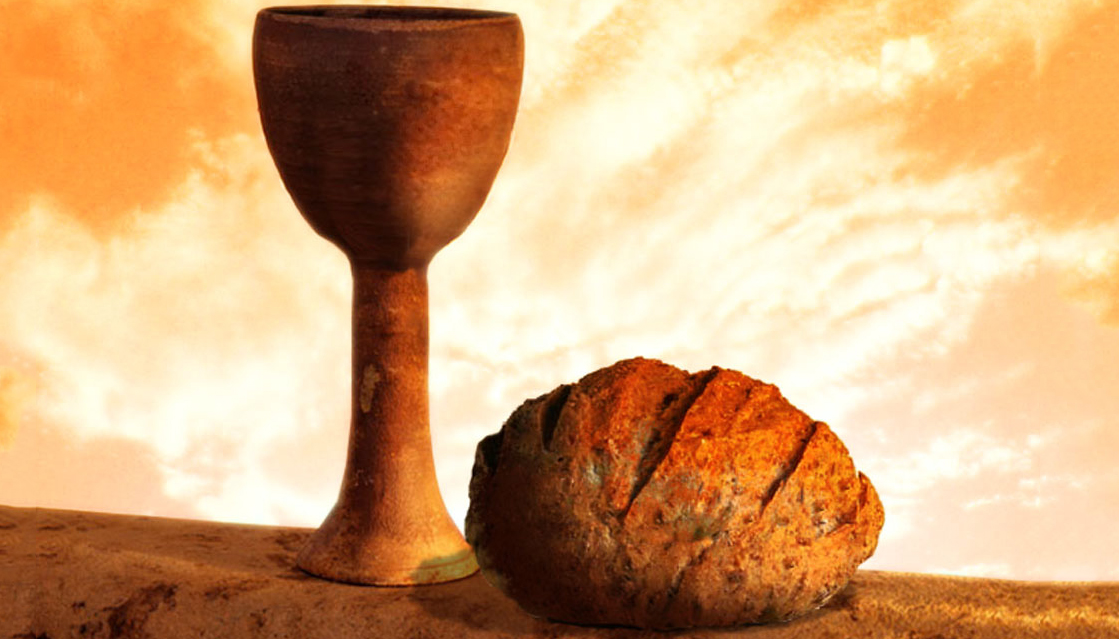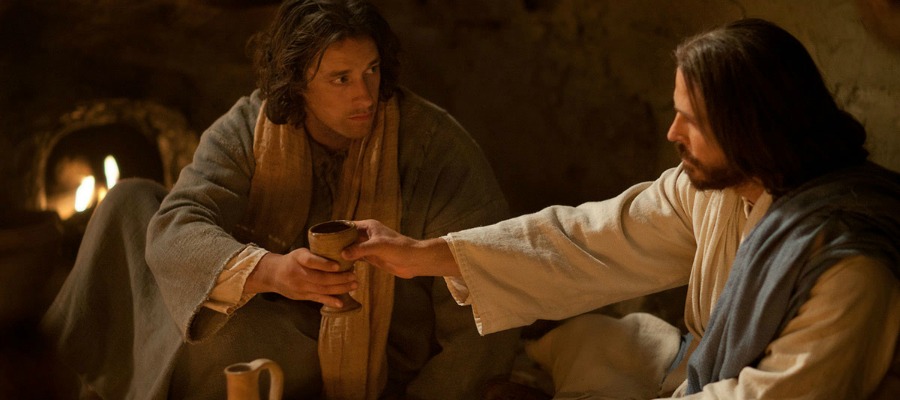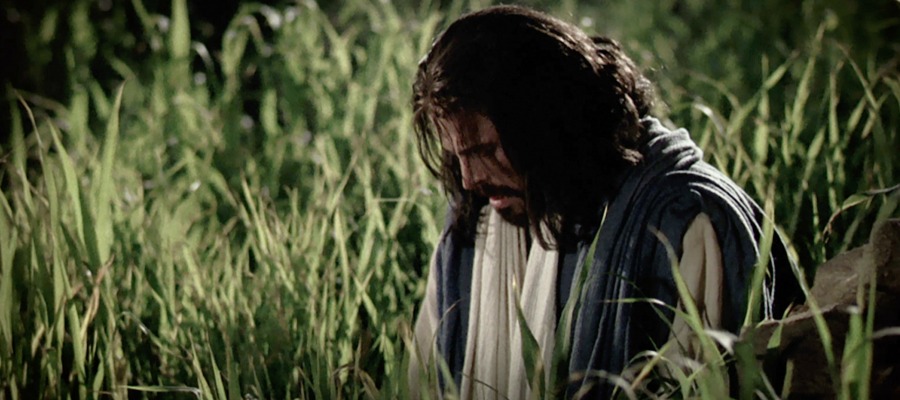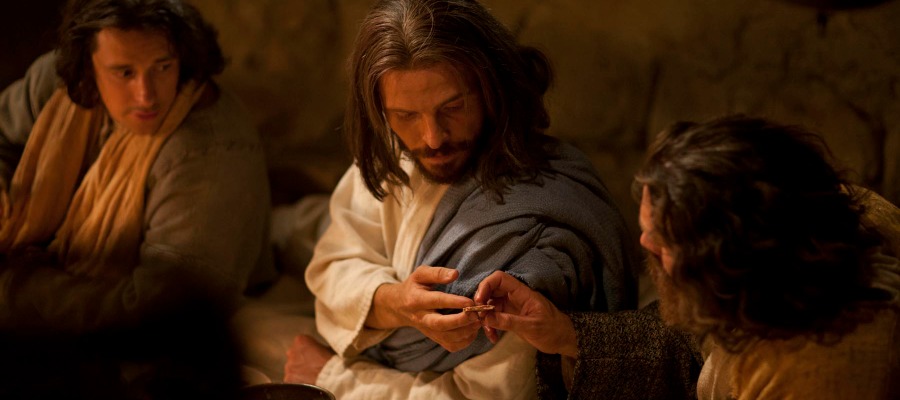What’s the Big Hullabaloo About the Sacrament?
If you’re looking for an exegetically advanced article answering all your questions about the ordinance of the sacrament, I’m sorry to disappoint. Don’t let my use of the word exegetically fool you, I’m just your average dude with gospel questions, just like you. The most recent questions that have been rattling around in my head have to do with the ordinance of the sacrament. Based on how heavily modern prophets emphasize the sabbath day and the sacrament’s role in it, it seems like a HUGE DEAL—but as of late I’ve struggled to understand why the sacrament is such a huge deal.
Is it more than just eight minutes of folding my arms and trying not to think about what I’m going to eat when I get home from church? If it’s not a “saving” ordinance, it can’t be that important, right? Apparently one of its purposes is to renew the covenant and blessings of baptism, but forgiveness of sin isn’t exclusive to Sundays, so what makes the sacrament unique? What can I get from the sacrament that I can’t get anywhere else?
I’ve got good news and bad news. The bad news is that I still don’t think I can satisfactorily answer all of those questions. The good news is that I’ve made some progress over the last few weeks of study. Here’s what I’ve learned:
Don’t freak out if you don’t fully understand the sacrament
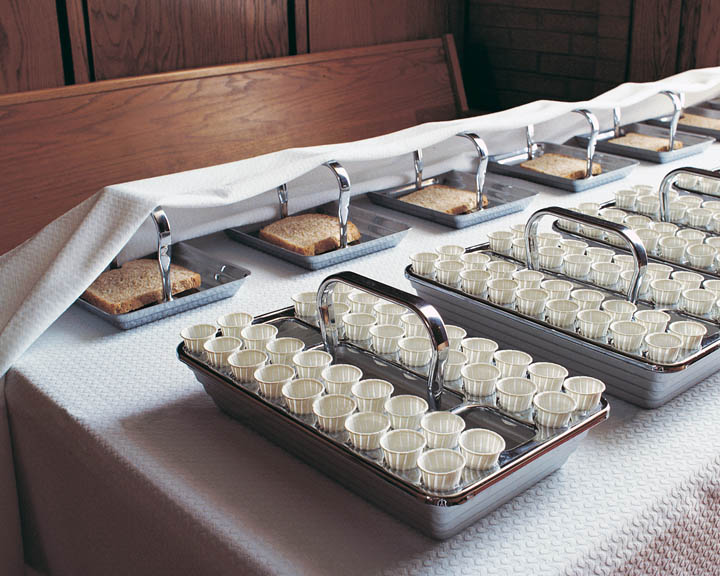 Do we completely understand Jesus Christ’s atonement? Can we comprehend the pain, the suffering, and the unconditional love He experienced during those hours in Gethsemane, on the cross, and at His resurrection? Maybe we can understand the general theory behind it—because He died, we can live, etc.—but do we actually know what Christ went through? Nope. And if we can’t fully comprehend Christ’s atonement (I don’t think we ever will), we’re not going to be able to fully comprehend the sacrament, because it’s all about the atonement. So, if you have questions about the sacrament like I do, don’t feel too bad about yourself just yet.
Do we completely understand Jesus Christ’s atonement? Can we comprehend the pain, the suffering, and the unconditional love He experienced during those hours in Gethsemane, on the cross, and at His resurrection? Maybe we can understand the general theory behind it—because He died, we can live, etc.—but do we actually know what Christ went through? Nope. And if we can’t fully comprehend Christ’s atonement (I don’t think we ever will), we’re not going to be able to fully comprehend the sacrament, because it’s all about the atonement. So, if you have questions about the sacrament like I do, don’t feel too bad about yourself just yet.
There are two hemispheres to the sacrament
First, there’s the aspect of literal, physical power that comes about as a result of the sacrament. The next category has to do with symbolic value, which is by no means just meant to be “feel-goody.” It should result in real change. First, let’s take a crack at the first category.
1. The literal, physical power of the sacrament
I absolutely love this metaphor that Dr. Anthony Sweat, an author, painter, and BYU religion professor, made a while back:
One of the special blessings of my life is that I have full access to all my wife’s gifts and abilities and resources—her knowledge, wisdom, talents, strength, goodness, and just down-right cute-ness. Why am I so fortunate to have all of Cindy Sweat’s resources at my fingertips? Well, because I married her. I gave my life to her, she gave her life to me, and we became one… It’s the marriage ordinance that connects me to her and her to me and gives us full access to what each other can offer the other.
Now, why am I telling you this about marriage? Let me explain with a verse from the Doctrine and Covenants: ‘Therefore, in the ordinances thereof, the power of godliness is manifest.’ In other words, gospel ordinances give us access to God’s power in our lives and help us become more like Him. Just like how a person gains full access to their spouse’s gifts, abilities, and powers through the ordinance of matrimony, we gain access to God’s gifts, abilities, and powers through the ordinances of the gospel.
Pretty sweet, eh? One of the purposes of ordinances is to literally make us more like God the Father and Jesus Christ. They’re intended to make us one in them as they are with each other.
That they all may be one; as thou, Father, art in me, and I in thee, that they also may be one in us: that the world may believe that thou hast sent me.
And the glory which thou gavest me I have given them; that they may be one, even as we are one:
I in them, and thou in me, that they may be made perfect in one; and that the world may know that thou hast sent me, and hast loved them, as thou hast loved me.
Renewing the baptismal covenant through the sacrament
Many of the blessings of the sacramental ordinance undoubtedly come unnoticed, but as an example, remember the baptismal covenant we renew during the sacrament. When we partake of the sacrament, President Dallin H. Oaks said that,
We witness that we are willing to take upon us the name of Jesus Christ and always remember Him and keep His commandments. When we comply with this covenant, the Lord renews the cleansing effect of our baptism. We are made clean and can always have His spirit to be with us.
Sweet, we can be clean again! No unclean thing can enter into the presence of God, so that’s great that we can be clean and have the Spirit with us all the time. BUT WAIT, there’s more. Yes, we can be clean, that’s all true and eternally important, but try looking at this another way. God doesn’t want us spiritually clean just because it’s a requirement to be with Him. We need to be clean because He is clean. Spiritual cleanliness is an attribute of God, and we need to become like Him. The same goes for access to the Holy Ghost. Yes, the Spirit can protect us and make us feel warm inside, but it also allows us a peek into the mind of God. It allows us to think like God thinks and to feel like God feels.
Now, can’t you be forgiven without the sacrament? Yes, but the sacrament is an ordinance and it’s through ordinances that the full power of godliness can be made manifest. Why? I don’t know. Stop complaining and be grateful. Anyway, the sacrament isn’t just about forgiveness and renewing covenants, either. It’s definitely a bonus, but there’s a whole lot more.
2. The symbolic stuff
Sacrifice
In Old Testament times, under the Law of Moses, people were sacrificing animals on the daily. You’re probably familiar with some of the animal requirements: it has to be a male lamb, without blemish, as perfect as can be. Lambs were sacrifices as symbols of Christ’s future atoning sacrifice. We, on the other hand, are on the other end of the chronological spectrum. The atonement has already happened. So while the ancients offered sacrifices as a way to look forward to the atonement, we offer a different kind of sacrifice to look back on the atonement. Our sacrifice is evident in the sacramental prayers:
- Remember Jesus Christ
- Take upon us the name of Christ
- Keep the commandments
This is one way we can fulfill Christ’s commandment to the Nephites:
And ye shall offer up unto me no more the shedding of blood; yea, your sacrifices and your burnt offerings shall be done away, for I will accept none of your sacrifices and your burnt offerings.
And ye shall offer for a sacrifice unto me a broken heart and a contrite spirit.
Life debt
Before offering sacrifice in ancient Israel, the one offering sacrifice would lay their hands on the head of the lamb and dedicate it to the Lord as a worthy substitute for themselves. They would symbolically transfer their sins to the animal, mirroring how Christ took each of our places, and each of our sins, at the metaphorical sacrificial altar.
Christ did for us that which we could not do for ourselves. Without His sacrifice, it would have been your flesh and your blood on that altar instead of His. When the priests bless the sacrament (on an altar) every Sunday and the deacons pass it down my row, I should be looking at the “flesh and blood” in those trays thinking, “this could have been my flesh and my blood. It would have been inevitable without Christ’s interposition.” We are eternally indebted to Jesus Christ for His sacrifice.
Generally, when you think of a life debt, you think of lifelong devotion, servitude, and dedication. And yes, we should be devoted to Christ and serve Him, but He doesn’t want us to be slaves to Him. He wants us to become like Him. Devotion and service or are just two (of many) Christlike attributes we should develop as we follow in His footsteps.
Becoming like Christ
During the sacrament, we promise to take Christ’s name upon ourselves (remember Dr. Sweat’s marriage reference?). Your name is now symbolically Jesus Christ. It’s another symbolic suggestion that we need to be one with Him.
And don’t forget that we’re symbolically ingesting the body and blood of Christ. We’re assimilating His being into ours. That’s another hint urging us to become one with Christ.
So now we’re receiving the physical blessing of spiritual cleanliness and access to the mind, heart, and will of God through the Spirit (attributes of Christ), our name is Jesus Christ, our body is Jesus Christ as well.
Through the ordinance of the sacrament, God is doing His part to change us into Christlike beings, and He urges us very directly to do our part as well. (He can’t do all the work. Making an effort to change ourselves is another attribute we have to develop to become like Christ.)
Remembering
There’s a lot going on with the sacrament. And hopefully, my meager attempt to find personal meaning in the sacrament hasn’t come across as confusing or speculative. But when I try to simplify the sacrament down I come back to the concept of remembering.
And he took bread, and gave thanks, and brake it, and gave unto them, saying, This is my body which is given for you: this do in remembrance of me.
Likewise also the cup after supper, saying, This cup is the new testament in my blood, which is shed for you.
I think I’ve unconsciously overlooked this aspect of the sacrament countless times, because remembering Christ and His sacrifice isn’t difficult for me, and maybe you’re in the same boat. I do my best to take the sacrament every single week, I go to Sunday School, pray daily, read the scriptures, heck I write for a website called MormonHUB.com. But my research about the sacrament has changed my perspective a bit:
You can’t remember anything without a reminder. The sacrament is a loving reminder from our Heavenly Father and Jesus Christ. It’s an immensely spiritual reminder, but it’s also one that we can see, hear, smell, taste, and touch every week. What is He trying to remind us of so often?
He wants to personally remind you, powerfully and often, that because of Him, no matter who you are or what you’ve done, there’s hope.



